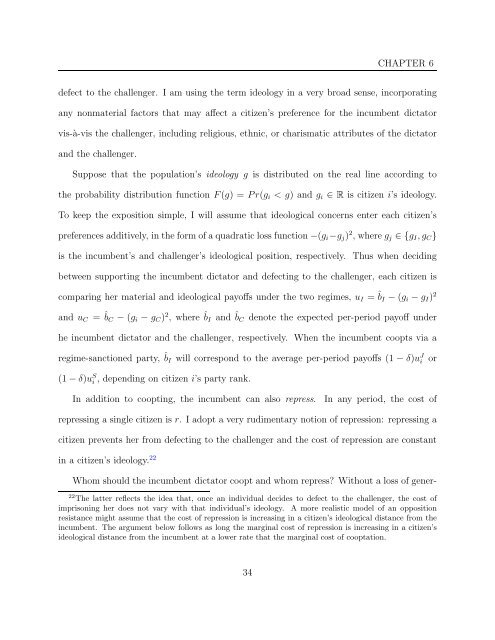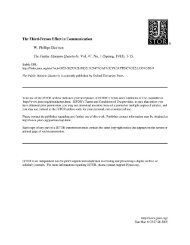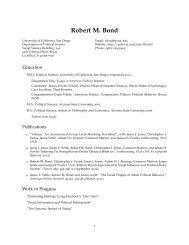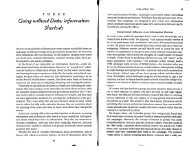Chapter 6 Why Authoritarian Parties? The Regime Party as an ...
Chapter 6 Why Authoritarian Parties? The Regime Party as an ...
Chapter 6 Why Authoritarian Parties? The Regime Party as an ...
Create successful ePaper yourself
Turn your PDF publications into a flip-book with our unique Google optimized e-Paper software.
CHAPTER 6<br />
defect to the challenger. I am using the term ideology in a very broad sense, incorporating<br />
<strong>an</strong>y nonmaterial factors that may affect a citizen’s preference for the incumbent dictator<br />
vis-à-vis the challenger, including religious, ethnic, or charismatic attributes of the dictator<br />
<strong>an</strong>d the challenger.<br />
Suppose that the population’s ideology g is distributed on the real line according to<br />
the probability distribution function F(g) = Pr(gi < g) <strong>an</strong>d gi ∈ R is citizen i’s ideology.<br />
To keep the exposition simple, I will <strong>as</strong>sume that ideological concerns enter each citizen’s<br />
preferences additively, intheformofaquadraticlossfunction−(gi−gj) 2 , wheregj ∈ {gI,gC}<br />
is the incumbent’s <strong>an</strong>d challenger’s ideological position, respectively. Thus when deciding<br />
between supporting the incumbent dictator <strong>an</strong>d defecting to the challenger, each citizen is<br />
comparing her material <strong>an</strong>d ideological payoffs under the two regimes, uI = ˆ bI −(gi −gI) 2<br />
<strong>an</strong>d uC = ˆ bC − (gi − gC) 2 , where ˆ bI <strong>an</strong>d ˆ bC denote the expected per-period payoff under<br />
he incumbent dictator <strong>an</strong>d the challenger, respectively. When the incumbent coopts via a<br />
regime-s<strong>an</strong>ctioned party, ˆ bI will correspond to the average per-period payoffs (1 − δ)u J i or<br />
(1−δ)u S i<br />
, depending on citizen i’s party r<strong>an</strong>k.<br />
In addition to coopting, the incumbent c<strong>an</strong> also repress. In <strong>an</strong>y period, the cost of<br />
repressing a single citizen is r. I adopt a very rudimentary notion of repression: repressing a<br />
citizen prevents her from defecting to the challenger <strong>an</strong>d the cost of repression are const<strong>an</strong>t<br />
in a citizen’s ideology. 22<br />
Whom should the incumbent dictator coopt <strong>an</strong>d whom repress? Without a loss of gener-<br />
22 <strong>The</strong> latter reflects the idea that, once <strong>an</strong> individual decides to defect to the challenger, the cost of<br />
imprisoning her does not vary with that individual’s ideology. A more realistic model of <strong>an</strong> opposition<br />
resist<strong>an</strong>ce might <strong>as</strong>sume that the cost of repression is incre<strong>as</strong>ing in a citizen’s ideological dist<strong>an</strong>ce from the<br />
incumbent. <strong>The</strong> argument below follows <strong>as</strong> long the marginal cost of repression is incre<strong>as</strong>ing in a citizen’s<br />
ideological dist<strong>an</strong>ce from the incumbent at a lower rate that the marginal cost of cooptation.<br />
34











